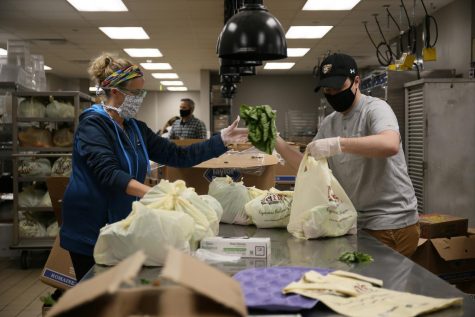International students face unique position during COVID-19
International students attending Oakland University have not been sent home during the campus closures and forced move-outs of most on-campus students. Separate policies have been tailored specifically to aid these students’ unique situation during the COVID-19 outbreak.
The Office of Global Engagement, which houses the International Students and Scholars Office (ISSO), has been working remotely as of Monday, March 23 to keep international students in the U.S. and able to do their course studies. The biggest challenge faculty has faced with working remotely is processing all the paperwork to keep students in the area.
“We continue to serve international students remotely and we are able to, based on guidance from the U.S. government, allow them to take all of their classes online, and we are able to scan and send some immigration documents that would usually need to be originals,” Executive Director of Global Engagement Rosemary Max said via email. “It is very important that we continue to process immigration benefits for students.”
Typically, international students would not be allowed to take more than one online class per semester according to the national body that governs over them. That rule has been waved for the time being, allowing these classes to still count for students.
No students have been sent home at this time, according to Max. Despite that, some students have willingly chosen to go home based on the circumstances they have faced here.
“Given the fact that classes are online, students have chosen to go home or stay in the area,” Max said. “Some have had trouble because of the flight situation right now. We don’t know what will happen with flights yet or what countries will be the next hotspots, so the next few weeks will be hard to predict. We are working with students on an individual basis to see what their concerns are and to see how we can address them as best we can.”
Many students face difficult situations in their home countries, from their own challenges with the coronavirus to civil wars and other conflicts. Going home was not an option for these students, which is why the Office of Global Engagement is working to keep them in the U.S.
As many of these students work while living at OU, many are worried about their financial situation, and some have lost their jobs due to the virus. Director David Archbold works with these students, as well as with students who have graduated from OU and continue to live and work in the area. According to him, these students are concerned about the job market, and don’t know what the future holds.
“It’s hard especially to work with those students and to try to reassure them that things will get better, and you know that they may have lost their job currently, there’s hope that they’ll be able to find something else,” Archbold said. “Right now, everything’s pretty chaotic, but my hope is that by the end of May or some time in May, we will have flattened the curve on the spread of the coronavirus in Michigan and will slowly adapt to what the new norm will be.”








